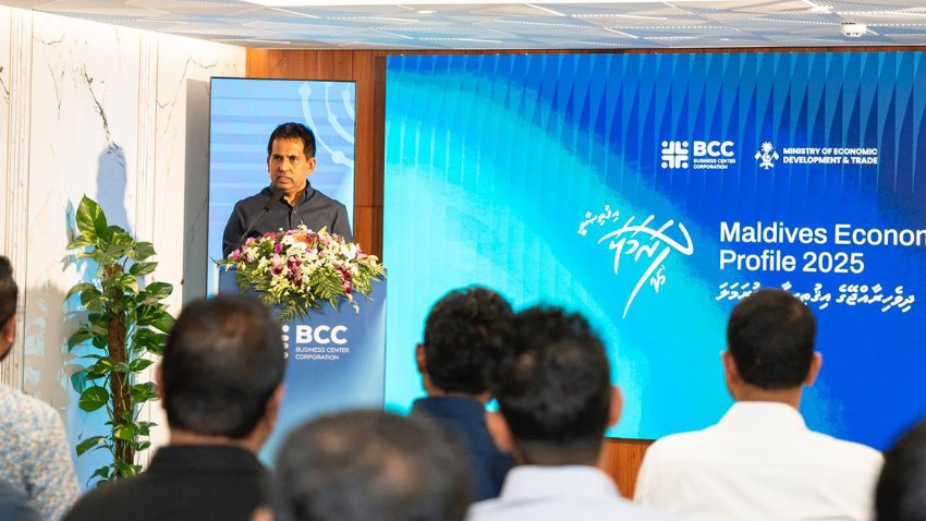
The Business Centre Corporation (BCC) has launched “Dhivehi Raajjeyge Iqthisaadhee Furamala 2025,” a new initiative aimed at gathering comprehensive data on economic development projects across the Maldives. The initiative, inaugurated by Minister of Economic Development and Trade Mohamed Saeed, will focus on profiling projects by collecting information on gender representation within contracted workforces and documenting the status of developmental projects nationwide.
Under this programme, BCC teams will visit all residential islands to collect the latest economic data. These field efforts will complement existing statistics gathered by various administrations, providing a thorough profile of economic activities across the islands. The initiative is set to begin practical work in Haa Alif Atoll later this month, with the target of completing the project by mid-2025.
Speaking at the inauguration ceremony, Minister Saeed highlighted the importance of the project, noting that its detailed economic profiling will be a key asset in national development efforts. He encouraged BCC to conduct the data collection with precision, stressing that the results could significantly influence economic planning and decision-making in the Maldives.
Deputy Managing Director of BCC, Saamih Adam, remarked that the initiative’s impact will start to become evident even before its completion. He pointed out that the collected data will be instrumental in identifying small and medium enterprises (SMEs) and tailoring special services to support them.
BCC stated that the initiative will provide vital insights for policymakers, supporting informed decisions and fostering a more inclusive economy. In addition, the data is expected to create new avenues for both local and foreign investments, as it will encompass all economic activities related to development across the nation.
This extensive profiling effort reflects BCC’s commitment to enhancing the Maldives’ economic landscape by gathering data that supports sustainable growth and improved resource allocation across sectors.












